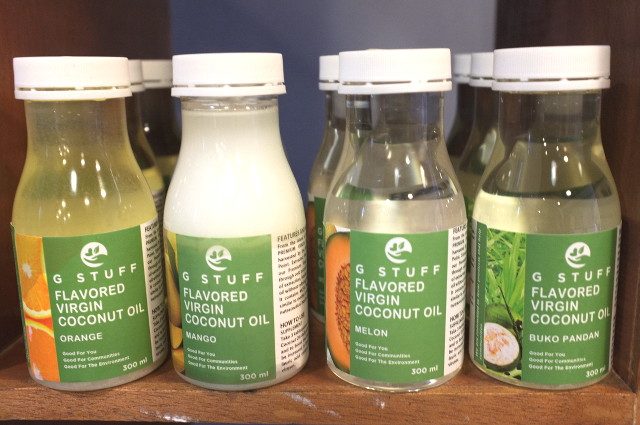SUMMARY
This is AI generated summarization, which may have errors. For context, always refer to the full article.

MANILA, Philippines – The government is calling for more investments in coconut-based businesses to help usher in a “golden age” for the Philippine coconut industry.
In the first investor’s summit for coconut-based enterprises held on Thursday, February 26, Presidential Assistant for Food Security and Agricultural Modernization Francis Pangilinan said now is the time for the country to develop one of its most promising industries.
Key to this is improving the lives of coconut farmers and their capability to produce globally-competitive coconut products, Pangilinan said.
“This summit aims to bring together the various stakeholders in the coconut industry, both government and private sector, and convince all not just to invest in the coconut industry per se but more precisely to invest in the industry’s number one resource: the coconut farmer,” he said.
The event featured an exhibit of Philippine-made coconut products including coconut water, coconut sugar, coconut-based beauty and health products, liqueurs, and more.
Potential not yet maximized
Philippine Coconut Authority Administrator Romulo Arancon said the potential of the coconut industry to improve the country’s economy and lift coconut farmers from poverty has not yet been fully maximized.
Though the Philippines is the world’s second largest coconut producer and 68 out of 81 provinces are engaged in coconut production, 60% of Filipino coconut farmers live below the poverty line.
According to the National Anti-Poverty Commission (NAPC), coconut farmers earn an average of only P25,000 a year.
But new demand for coconut-based products could turn the tide.
Coconut water, for example, a low-calorie drink gaining popularity among health buffs, could potentially earn the country $450 million a year, given that the country produces 15 billion nuts annually, said Arancon.
“Our highest export so far of coconut water was in 2012 worth $18.5 million, only 4% of the potential,” he added.
Virgin coconut oil, a “world class” commodity that can be used to make massage oil, lotions, hair treatment products, among others, also holds great promise.
Philippine coconut product exports grew by 1,000% in the last 7 years, from 1,600 metric tons in 2008 to 22,681 metric tons in the middle of 2014.
There may also be a bright future for farmers and processors of potassium-rich coconut sugar.
“One day, all the sugar in Starbucks, hotels and airlines will be coconut sugar,” promised Arancon.
The Philippines and its farmers can also profit from the projected global demand of 4 million square meters of coconut nets per year, used for securing river beds from erosion.
Beyond copra
The goal, he added, was for the Philippine coconut industry to “go beyond copra.”
Copra, aged coconut meat, has brought only poverty for a majority of coconut farmers. In most cases, copra farmers earn only P40 to P50 a day.
In contrast, one liter of coconut water is sold for $5 to $7 in American groceries. One nut harvested by a farmer holds 300 milliliters of coconut water.
Best practices in farming can also help lift farmers from poverty. Farmers who plant other crops and raise livestock on the side can bring in as much as P50,000 a month per hectare.
To be globally competitive, the challenge for the Philippine coconut industry is to ensure quality, volume and reliability of supply, said Arancon.
The fruits of a bountiful coconut sector will only trickle down to farmers if everyone would introduce “new forms of business engagement” with them, said Rafael Lopa, Executive Director of Philippine Businesses for Social Progress.
There are more than 3.5 million coconut farmers in the country while around 25 million Filipinos are employed directly and indirectly by the sector.
To improve their productivity and quality of living, they should move beyond merely harvesting to owning or partly owning enterprises, said Lopa.
The government says it has this base covered.
Coconut hubs
The Department of Agriculture aims to establish 34 village-based agro-industrial hubs in coconut-producing provinces until 2016, said Agriculture Undersecretary for Special Concerns Bernadette Puyat.
These hubs are centers located in coconut farmer villages equipped with facilities for processing products like coconut water, coconut sugar, and virgin coconut oil.
The idea is to make these facilities accessible to farmers so they can make products from the coconuts they harvest. This would allow them to sell products at higher prices and eventually make more money from coconuts.
Puyat said they have already started, with a virgin coconut oil processing center in Mindanao and a coconut water facility in Camarines Sur.
Farmer cooperatives can also reap benefits from responsible public-private partnerships or joint ventures with establishments like restaurants, souvenir shops, or supermarkets.
But Lopa underscored the need for basic facilities which to this day are sorely lacking in many parts of the Philippines – facilities like irrigation, farm-to-market roads, and the provision of high-yielding coconut seeds.
Senator Cynthia Villar, meanwhile, said the coconut industry must also be protected from pests like the coconut scale insect which ravaged millions of coconut trees in Calabarzon and Basilan last year.
Villar, chairperson of the Senate committee on agriculture, said a task force should be automatically activated and given funds once an infestation is detected. –Rappler.com
Add a comment
How does this make you feel?
There are no comments yet. Add your comment to start the conversation.